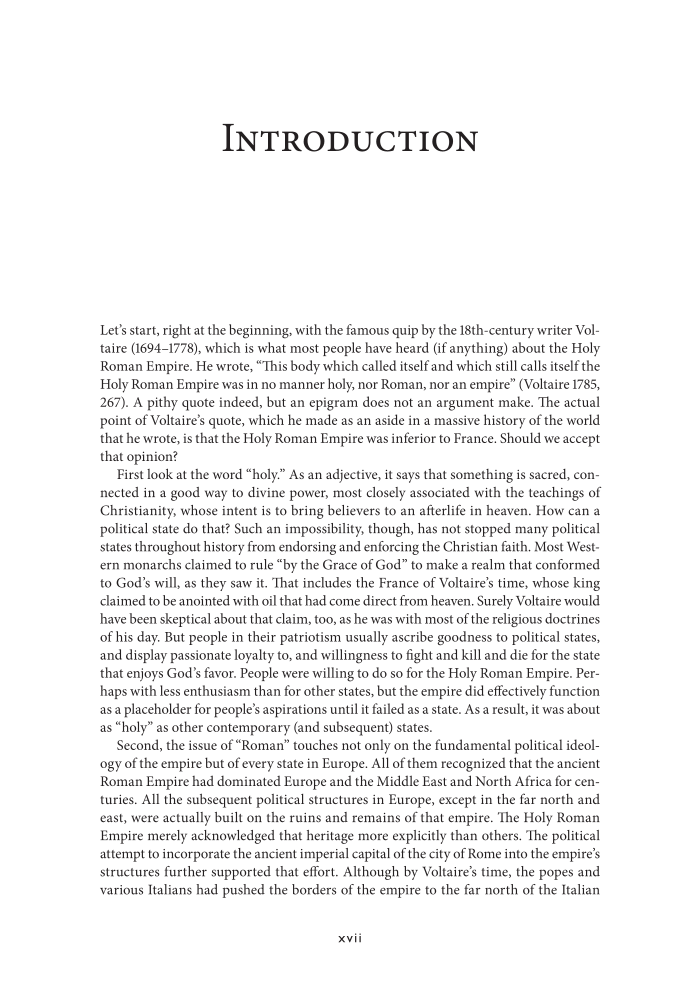xvii Introduction Let’s start, right at the beginning, with the famous quip by the 18th-century writer Vol- taire (1694–1778), which is what most people have heard (if anything) about the Holy Roman Empire. He wrote, “This body which called itself and which still calls itself the Holy Roman Empire was in no manner holy, nor Roman, nor an empire” (Voltaire 1785, 267). A pithy quote indeed, but an epigram does not an argument make. The actual point of Voltaire’s quote, which he made as an aside in a massive history of the world that he wrote, is that the Holy Roman Empire was inferior to France. Should we accept that opinion? First look at the word “holy.” As an adjective, it says that something is sacred, con- nected in a good way to divine power, most closely associated with the teachings of Christianity, whose intent is to bring believers to an afterlife in heaven. How can a political state do that? Such an impossibility, though, has not stopped many political states throughout history from endorsing and enforcing the Christian faith. Most West- ern monarchs claimed to rule “by the Grace of God” to make a realm that conformed to God’s will, as they saw it. That includes the France of Voltaire’s time, whose king claimed to be anointed with oil that had come direct from heaven. Surely Voltaire would have been skeptical about that claim, too, as he was with most of the religious doctrines of his day. But people in their patriotism usually ascribe goodness to political states, and display passionate loyalty to, and willingness to fight and kill and die for the state that enjoys God’s favor. People were willing to do so for the Holy Roman Empire. Per- haps with less enthusiasm than for other states, but the empire did effectively function as a placeholder for people’s aspirations until it failed as a state. As a result, it was about as “holy” as other contemporary (and subsequent) states. Second, the issue of “Roman” touches not only on the fundamental political ideol- ogy of the empire but of every state in Europe. All of them recognized that the ancient Roman Empire had dominated Europe and the Middle East and North Africa for cen- turies. All the subsequent political structures in Europe, except in the far north and east, were actually built on the ruins and remains of that empire. The Holy Roman Empire merely acknowledged that heritage more explicitly than others. The political attempt to incorporate the ancient imperial capital of the city of Rome into the empire’s structures further supported that effort. Although by Voltaire’s time, the popes and various Italians had pushed the borders of the empire to the far north of the Italian
Document Details My Account Print multiple pages
Print
You have printed 0 times in the last 24 hours.
Your print count will reset on at .
You may print 0 more time(s) before then.
You may print a maximum of 0 pages at a time.







































































































































































































































































































































































































































































































































































































































































































































































































































































